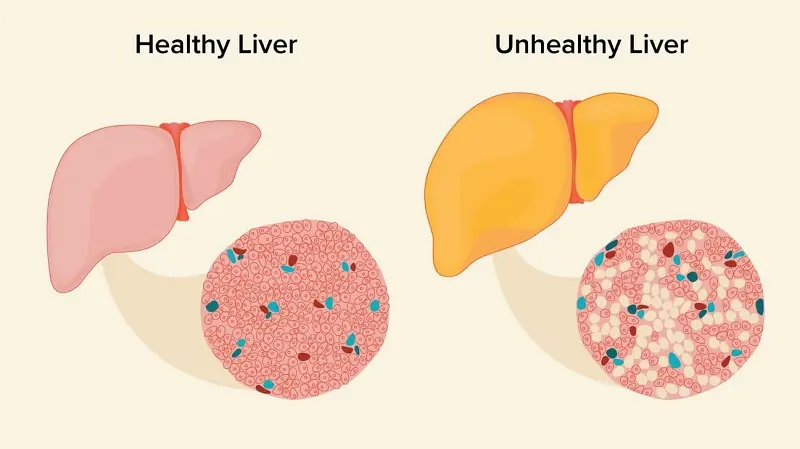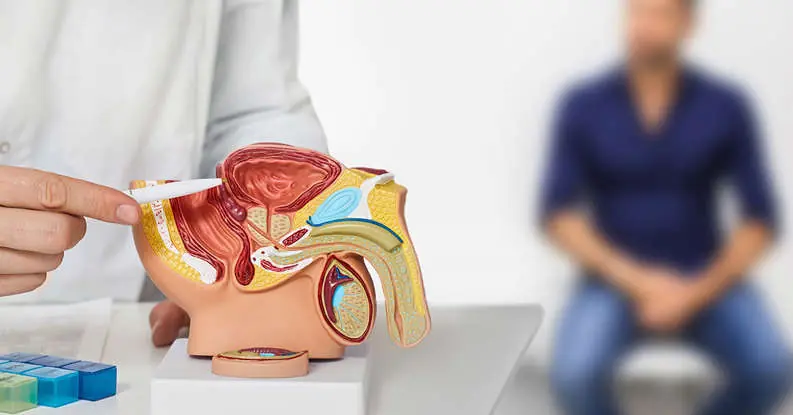
The Side Effects of Ibuprofen You May Not Be Aware Of

What Do You Do When You Have a Headache?
When a headache strikes, what’s the first thing you do? Chances are, like most people, you reach for a painkiller—perhaps ibuprofen or another over-the-counter option. The same likely applies when dealing with joint pain, backaches, or sore muscles. Painkillers like ibuprofen have become a go-to solution for quick relief. However, while they may seem harmless, the long-term effects of these medications can be more serious than many realize.
A growing body of research is now showing that commonly used painkillers such as ibuprofen may carry significant health risks, especially concerning heart health. According to a 2016 study published in the British Medical Journal, these widely used drugs are linked to an increased risk of heart failure. This study brought new attention to the potential side effects of non-selective non-steroidal anti-inflammatory drugs (NSAIDs), a category that includes ibuprofen, diclofenac, and naproxen.
The Research Behind Ibuprofen’s Side Effects
The study, conducted by researchers from the University of Milano-Bicocca in Italy, analyzed data from almost 10 million NSAID users in the United Kingdom, the Netherlands, Italy, and Germany. All of these individuals began taking NSAIDs between 2000 and 2010. What the researchers found was concerning: individuals who had taken any NSAID within the 14 days prior to the study had a 19% higher risk of being hospitalized for heart failure compared to those who hadn’t recently used them.
Notably, the increased risk wasn’t limited to ibuprofen alone. Other NSAIDs like diclofenac and naproxen also showed a significant correlation with heart failure. While the degree of risk varied between different medications, the message was clear—regular or high-dose use of NSAIDs can pose serious cardiovascular risks.
This is especially concerning given how commonly these medications are used worldwide. From minor headaches to chronic conditions like arthritis, NSAIDs are often seen as a quick fix. Yet their long-term implications are not always considered.
Why These Findings Matter
The implications of this study go beyond just a medical warning—they touch on public health at a global scale. The study showed that even individuals without pre-existing heart conditions faced increased risks when using NSAIDs regularly or in high doses. In a world where cardiovascular disease is already one of the leading causes of death, these findings are hard to ignore.
While occasional use in healthy individuals is generally considered safe, the danger lies in misuse or overuse. For example, athletes participating in extreme endurance events, such as ultramarathons, are specifically advised not to take NSAIDs before, during, or immediately after these events. That’s because the combination of physical strain and the medication’s effects can put undue stress on the heart and kidneys.
For the average person engaging in moderate exercise or using NSAIDs only occasionally, the risk is significantly lower. Still, it’s important to remain informed and cautious.
How to Use NSAIDs Responsibly
Painkillers have their place—there's no denying that. But responsible usage is key. Experts recommend using NSAIDs only when necessary, at the lowest effective dose, and for the shortest amount of time possible. This approach can help minimize potential harm while still providing relief.
It’s also wise to consult a healthcare provider before beginning or continuing long-term NSAID use, particularly if you have a history of heart issues or other chronic conditions. Doctors can help assess whether these medications are truly necessary and may recommend safer alternatives or additional monitoring.
Exploring Safer Alternatives to NSAIDs
For those who prefer to avoid the risks altogether, there are several non-drug approaches to pain management. Depending on the cause and severity of the pain, alternative options can include:
-
Physical therapy – Targeted exercises can strengthen muscles and joints, reduce inflammation, and improve mobility.
-
Acupuncture – This traditional Chinese medicine technique is often used to treat chronic pain.
-
Hot and cold therapy – Applying heat or ice can provide effective, localized pain relief.
-
Mind-body techniques – Practices such as yoga, tai chi, and meditation can help manage pain by reducing stress and improving flexibility and circulation.
-
Diet and supplements – Anti-inflammatory diets rich in omega-3s, antioxidants, and certain vitamins may help reduce chronic pain and inflammation.
Making lifestyle changes like getting regular sleep, staying hydrated, and maintaining a healthy weight can also play a role in pain prevention and management.
The Bottom Line: Know What You’re Taking
In summary, while NSAIDs like ibuprofen are often relied upon for everyday aches and pains, they are not without risk. The 2016 British Medical Journal study emphasizes the importance of cautious use, especially among those with heart conditions or other risk factors.
Medication should never be the default solution without first weighing the pros and cons. Educating ourselves about the risks, speaking to our doctors, and considering natural or alternative treatments can help us make more informed decisions. By being proactive, we can reduce our reliance on potentially harmful drugs and prioritize our long-term health.
News in the same category


11 Reasons Why You Should Drink Aloe Vera Water Every Day

Shocking findings of new trial on Ozempic alternative pushes it closer to approval

Experts Warn People To Get Rid Of This Common Bedroom Item Over Fears It Might Harm Brain Health

6-Year-Old Boy Suffers Stroke After Waking Up – Doctor Urges Parents to Know These 4 Warning Signs to Save Their Child

3 Eye Symptoms That Could Warn of a Stroke or Cancer – Don’t Ignore Them

17 Common Foods That May Trigger Kidney Stones – What to Avoid for Healthier Kidneys

12 Strange Signs in Your Feet That Could Be Warning You About Liver Problems

If these happen to you, it’s high time you see a doctor

Man who saw ‘proof’ that ‘death is not the end’ explains the seven levels of afterlife

Over 50 Individuals Die Within Hours Of Symptoms Of An Unknown Illness Alarming Doctors

Warning sign of teen’s inoperable cancer that hit hours before diagnosis – now nothing can be done

If You See Someone with 'Visible Blue Veins', You Must Tell Them This — It Could Save Their Life

Common Habit Linked to 45% Higher Risk of Prostate Cancer in Men

Placing Two Index Fingers Together Can Reveal Lung Cancer: A Quick Test Used by Doctors

The Surprising Reason to Keep a Glass of Water by Your Bedside at Night

Scientists Have Identified Specific Cognitive Skill Linked To Longer Life In Older Adults

21-Year-Old Woman With Terminal Colon Cancer Warns Of The Early Symptoms That Are Simple To Ignore

Understanding the Causes of a Fishy Vaginal Odor
News Post

Here’s What The Lines On Bath Towels Actually Mean

Fake Honey is Flooding The Market — Here’s How To Spot The Real Thing

Here’s What It Really Means When A Man Turns His Back In Bed

Stop Shaving! Discover Natural Ways to Permanently Remove Facial, Body, and Pubic Hair

11 Reasons Why You Should Drink Aloe Vera Water Every Day

Shocking findings of new trial on Ozempic alternative pushes it closer to approval

Experts Warn People To Get Rid Of This Common Bedroom Item Over Fears It Might Harm Brain Health

6-Year-Old Boy Suffers Stroke After Waking Up – Doctor Urges Parents to Know These 4 Warning Signs to Save Their Child

3 Eye Symptoms That Could Warn of a Stroke or Cancer – Don’t Ignore Them

My MIL Ruined Our Wedding Three Times – But She Was the Only One Who Lost in the End

Child Made a New Friend at School, but Mom Is Shocked to Learn Who the Girl's Mother Is

I Became a Surrogate for My BIL and His Wife – When He Saw the Baby, He Yelled, 'This Must Be a Mistake!'

My Ex-husband Gifted Our Kid a Rocking Horse – When I Saw What Was Inside, I Called My Lawyer

My Husband and His Mistress Accidentally Got Into My Taxi So I Gave the Cheater an Anniversary He’ll Never Forget

Man Mocks Wife for Gaining Weight after Giving Birth, Finds Her Diary after She’s Hospitalized

My Stepdaughter Betrayed Me and Kicked Me Out After I Raised Her Like My Own – So I Used My Experience to Turn My Life Back Around

17 Common Foods That May Trigger Kidney Stones – What to Avoid for Healthier Kidneys

12 Strange Signs in Your Feet That Could Be Warning You About Liver Problems
